Welcome to our comprehensive guide on crafting a letter template for a board director's corporate governance report. In today's dynamic corporate landscape, effective communication and transparency are more important than ever for maintaining stakeholder trust. This template will help you articulate key governance insights and foster a culture of accountability within your organization. So, let's dive in and explore the essential elements you'll need to include to make your report truly impactful!

Introduction and Scope
Corporate governance is a fundamental framework designed to guide organizational integrity and accountability, especially in publicly traded companies such as those listed on the New York Stock Exchange (NYSE). This report encompasses an evaluation of governance practices implemented during the fiscal year 2023, focusing on compliance with regulatory benchmarks established by the Sarbanes-Oxley Act and the guidelines of the Securities and Exchange Commission (SEC). The scope includes the assessment of board composition, including the number of independent directors (required by regulations to be at least 50%), executive remuneration policies aligned with shareholder interests, and the effectiveness of audit processes as executed by external firms like Deloitte or PwC. Additionally, this report reviews mechanisms for stakeholder engagement, covering how the company interacts with shareholders, employees, and the wider community, crucial for transparency and trust. Understanding these components is vital to ensuring sustained corporate health and reputation in the competitive market landscape.
Governance Structure and Responsibilities
The governance structure of a corporation plays a crucial role in aligning the interests of stakeholders, ensuring transparency, and fostering accountability. At the core, the Board of Directors, typically composed of 7 to 15 members, is entrusted with overseeing the strategic direction of the organization and ensuring compliance with legal and ethical standards. Key committees within the board, such as the Audit Committee, Compensation Committee, and Nominating Committee, focus on specific areas of governance, creating a framework that enhances decision-making processes. The governance policies, which are periodically reviewed, establish clear roles and responsibilities for board members, executives, and other stakeholders, reflecting the best practices outlined by the Organization for Economic Co-operation and Development (OECD). Furthermore, the inclusion of independent directors, typically comprising at least 50% of the board, helps in mitigating conflicts of interest, ensuring unbiased oversight, and fostering investor confidence. Regular evaluations and disclosures are integral to maintaining the integrity of the governance structure, facilitating continuous improvement in governance practices.
Compliance and Regulatory Overview
The Compliance and Regulatory Overview provides a comprehensive analysis of the company's adherence to national and international legal frameworks, including the Sarbanes-Oxley Act (SOX) and the Foreign Corrupt Practices Act (FCPA). Key metrics indicate that the organization maintained a 98% compliance rate throughout the 2023 fiscal year, showcasing a commitment to ethical practices. Audits conducted by external firms, such as Deloitte and PwC, revealed no significant discrepancies, underscoring the effectiveness of current compliance programs. Furthermore, the establishment of a dedicated compliance committee in May 2022 has strengthened oversight, ensuring that emerging regulations, especially those related to data protection like the General Data Protection Regulation (GDPR), are promptly addressed. Employee training sessions conducted bi-annually, with participation rates exceeding 90%, reflect a proactive approach to fostering a culture of compliance throughout the organization.
Performance and Strategic Goals
The corporate governance report provides an overview of the performance metrics and strategic goals of the organization for the fiscal year 2023. Key Performance Indicators (KPIs) indicate a revenue growth of 15%, reflecting a successful market expansion within the North American region. Strategic goals for sustainability include a commitment to reducing carbon emissions by 30% by 2030, aligned with global standards set by the Paris Agreement. Additionally, employee engagement metrics show a 20% increase in job satisfaction, influenced by recent initiatives in diversity and inclusion. The board remains focused on enhancing shareholder value while ensuring compliance with regulatory frameworks established by the Securities and Exchange Commission (SEC). Overall, the corporate strategy aims to foster innovation and maintain competitive advantage in the rapidly evolving technology sector.
Risk Management and Mitigation
The board of directors for a corporation must ensure a robust risk management framework to safeguard organizational assets and stakeholder interests. An effective risk management strategy incorporates risk identification, assessment, and mitigation processes aligned with organizational objectives. For example, cybersecurity threats, representing a growing risk in 2023 with over 50% of firms reporting breaches, require continuous monitoring and adaptive strategies, such as implementing advanced firewalls and employee training programs. Additionally, financial risks, including market volatility exemplified by fluctuations in global stock indices, necessitate close scrutiny and contingency planning. Regulatory compliance risks, especially in high-stakes industries like finance and healthcare, demand adherence to standards set by governmental bodies such as the SEC or HIPAA. By prioritizing these areas, the board can ensure authorized oversight, enhance corporate governance, and protect the long-term sustainability of the organization.
Letter Template For Board Director Corporate Governance Report Samples
Letter template of corporate governance report for board director review
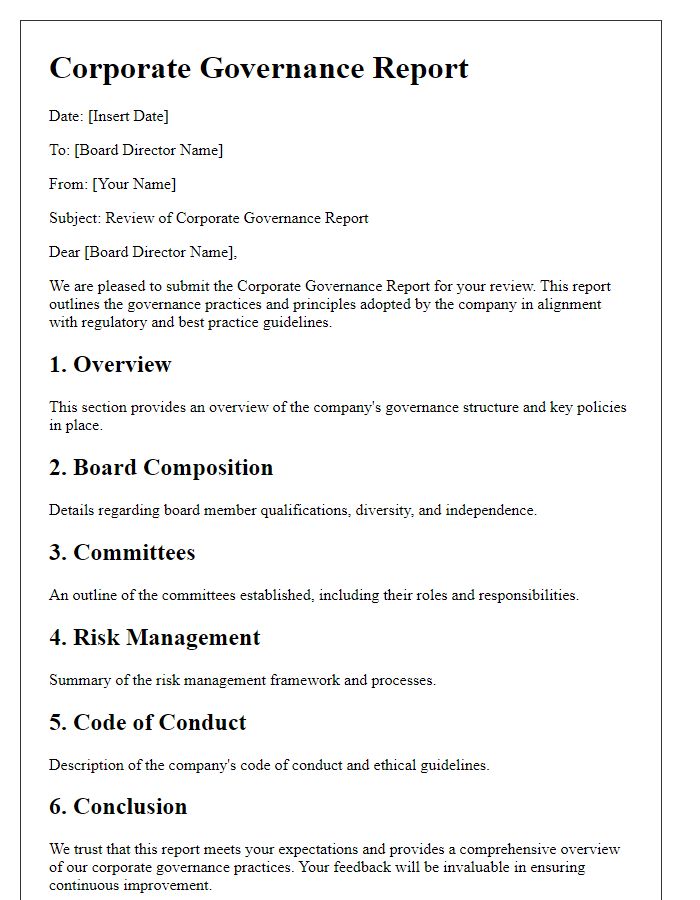

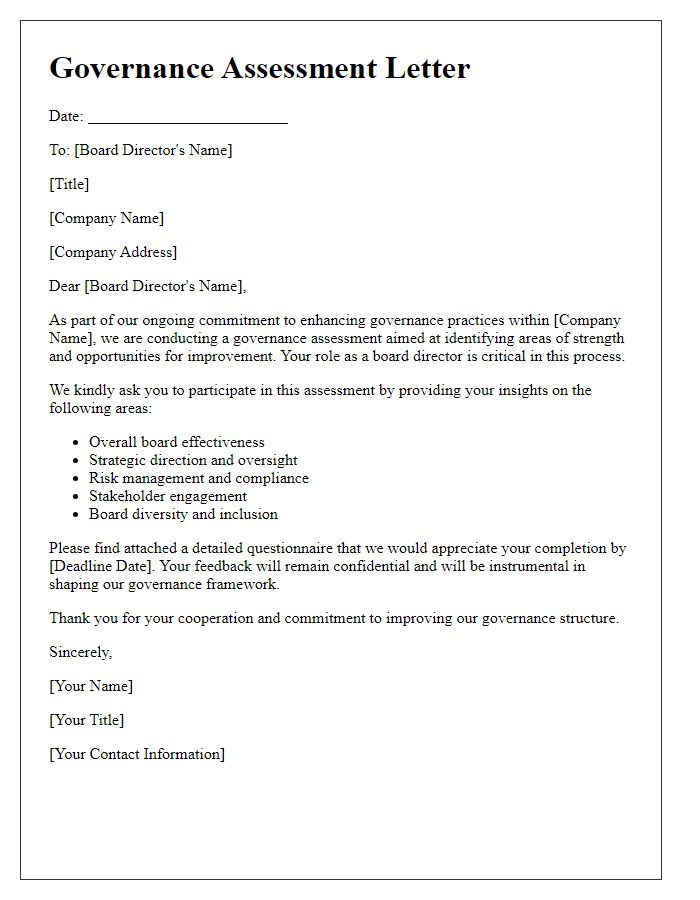
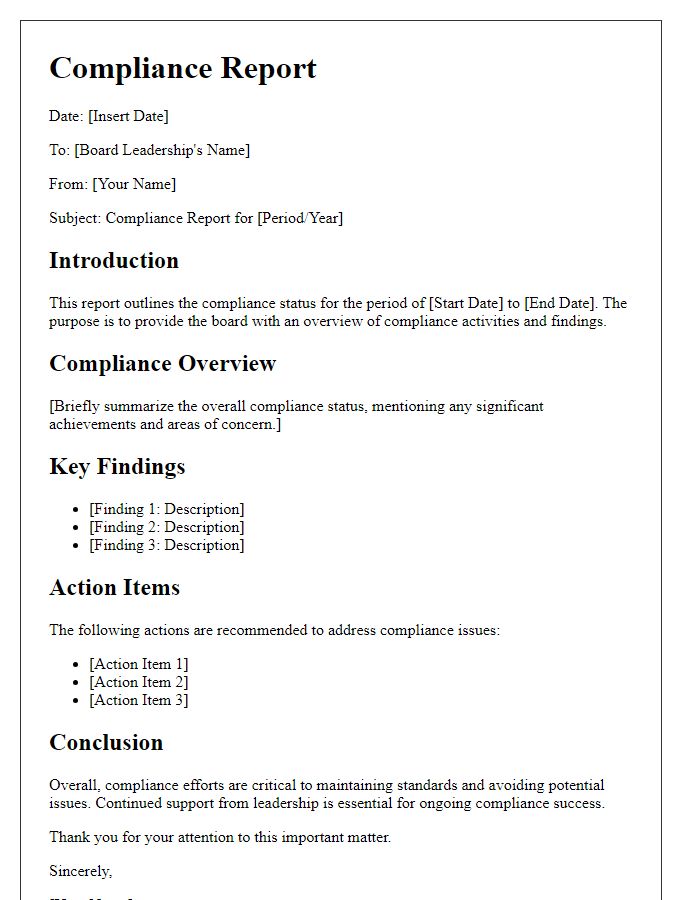
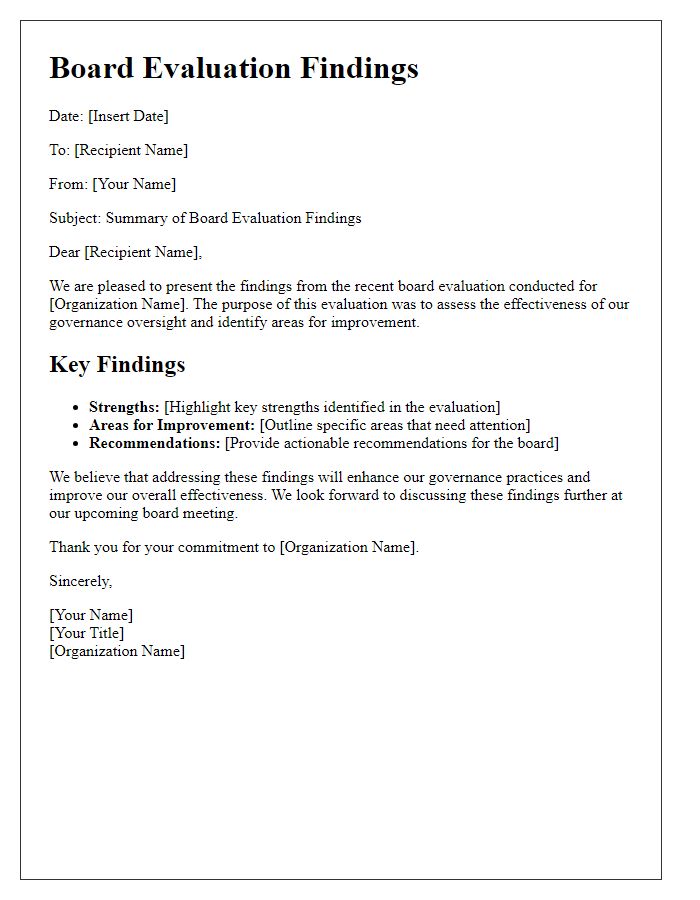
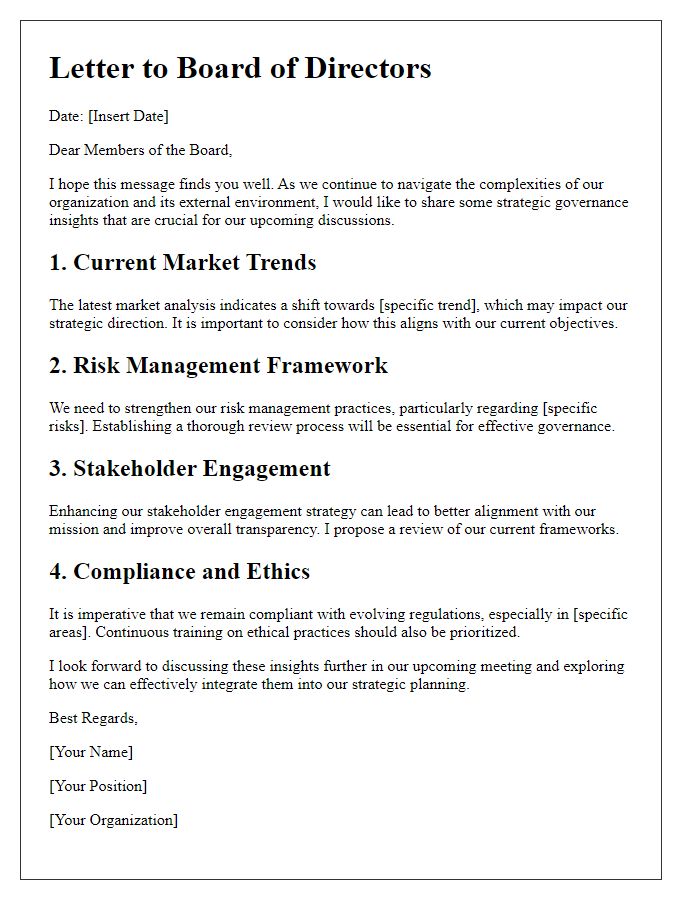
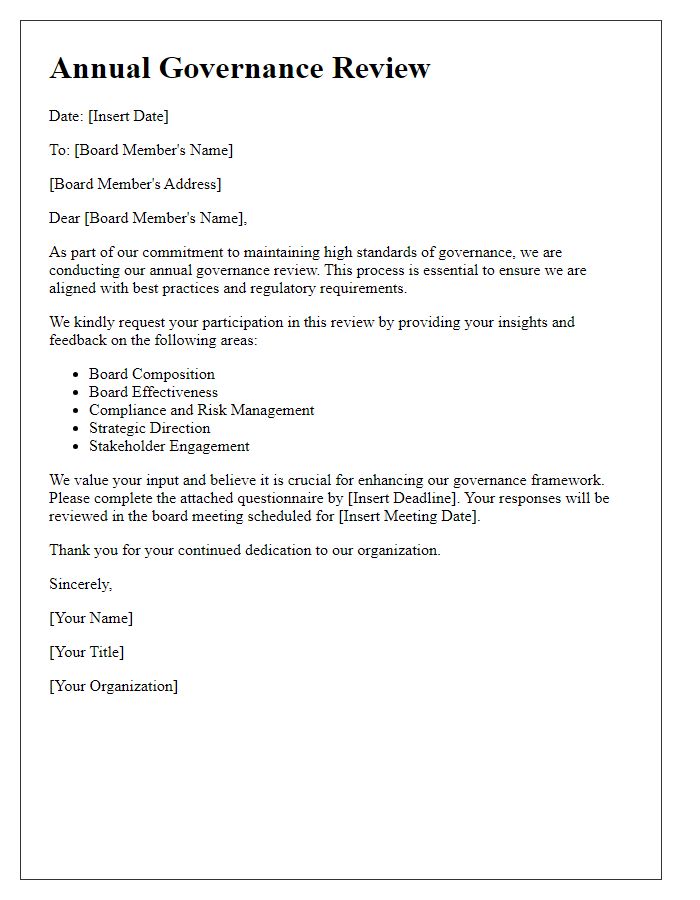
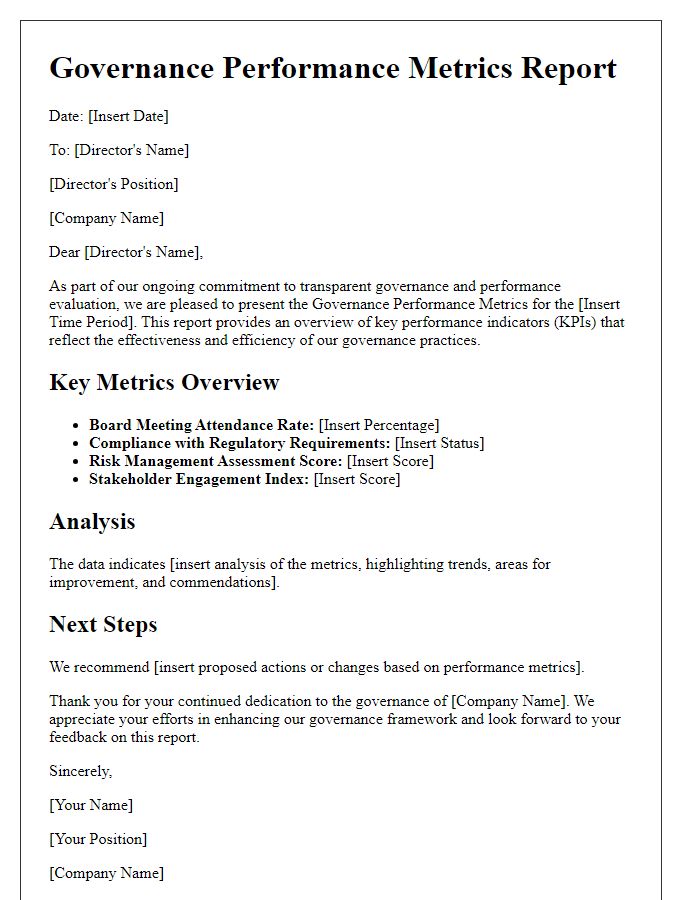
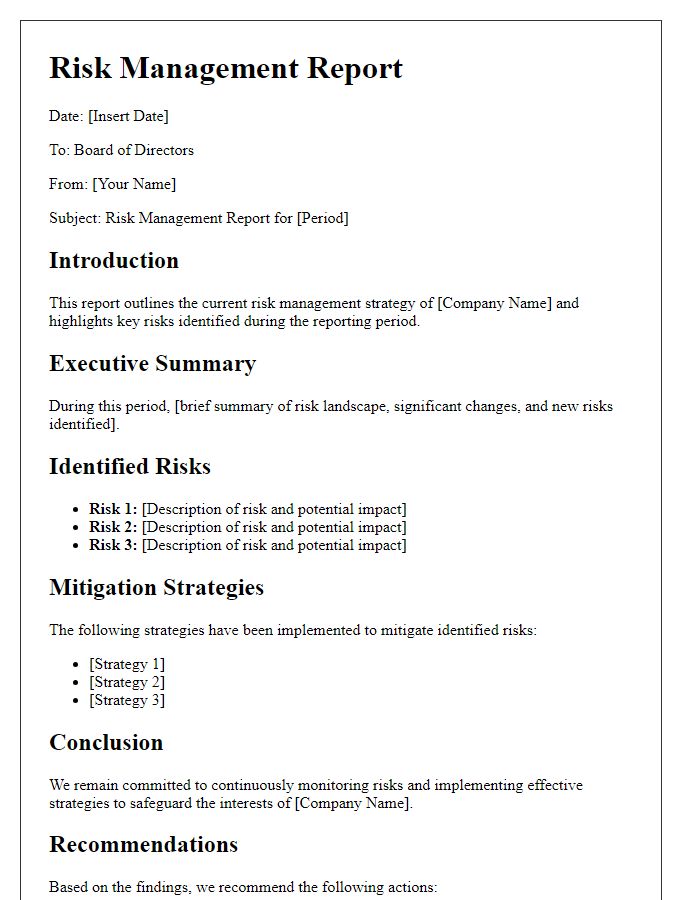
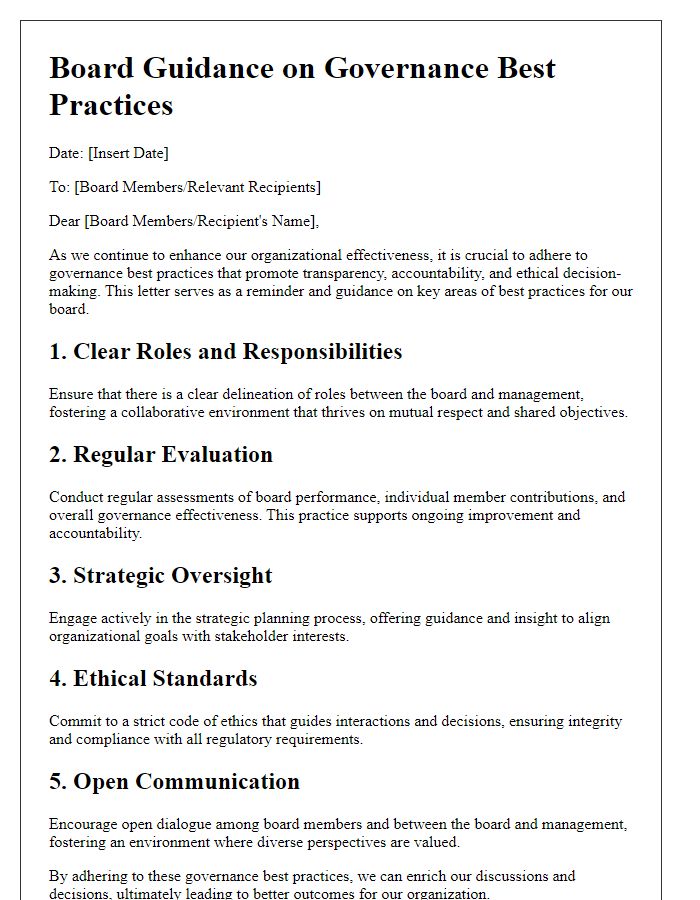
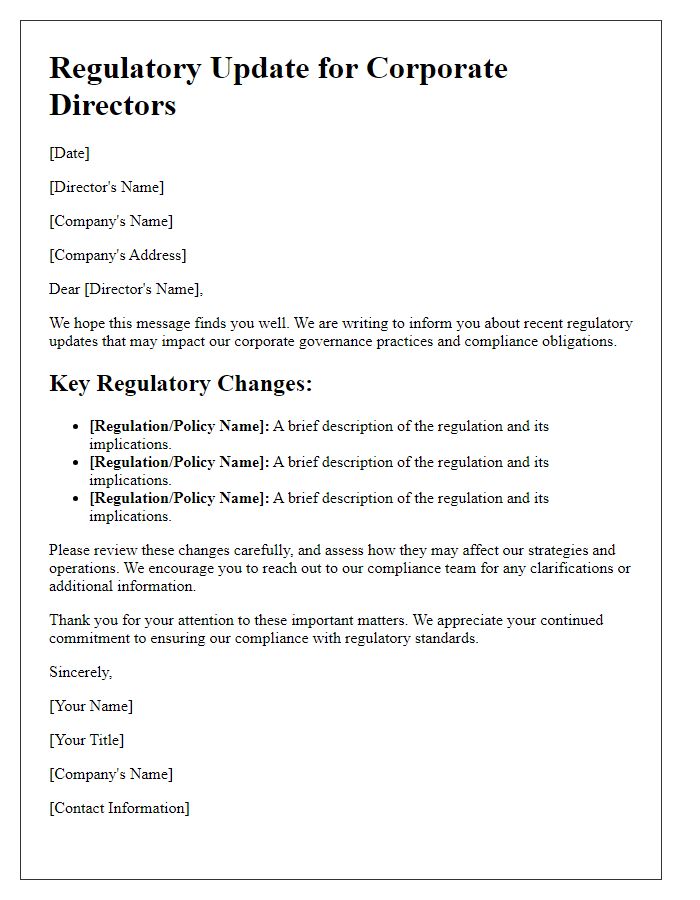


Comments